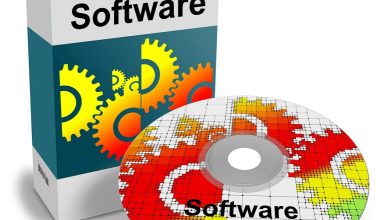Understanding B2B Software: A Comprehensive Guide 2024

Are you tired of feeling like a fish out of water when it comes to understanding B2B software? Look no further! In this comprehensive guide, we’ll dive deep into the world of business-to-business software and unlock its secrets. Whether you’re a tech-savvy entrepreneur or just starting your journey in the corporate world, this blog post will equip you with all the knowledge and tools needed to navigate through the complex realm of B2B software. So grab your metaphorical scuba gear and let’s embark on an exciting exploration together!
What is B2B Software?
B2B software is a type of business software that helps businesses manage their operations and automate their processes. It includes a wide range of applications, from accounting and invoicing to CRM and project management.
B2B software is designed to make it easy for businesses to work together and share data between different departments and teams. It can also help businesses automate their processes, making it easier for them to manage their operations.
B2B software can be deployed on-premises or in the cloud, depending on the needs of the business. On-premises B2B software is installed on the company’s own servers, while cloud-based B2B software is hosted by a third-party provider.
There are many benefits of using B2B software, including improved collaboration, increased efficiency, and better decision-making. However, it is important to choose the right B2B software for your business, as not all products are created equal. To help you make the best decision for your company, we’ve put together this comprehensive guide to understanding BB software.
Benefits of B2B Software
B2B software can offer a number of benefits to businesses, including the ability to streamline processes, improve communication and collaboration, and increase efficiency. When choosing a B2B software solution, it is important to consider the specific needs of your business and select a solution that offers the features and functionality you need.
B2B software solutions can help businesses streamline their processes by automating tasks and reducing the need for manual data entry. In addition, B2B software can improve communication and collaboration by providing a central repository for information and documents. B2B software can also increase efficiency by automating tasks such as email marketing or lead generation.
B2B software solutions can also help businesses to improve customer service by providing customers with easy access to self-service portals, product information, and support.
Finally, B2B software can help businesses better manage their data by providing insights into customer behavior and trends. This data can then be used to inform decisions about pricing, marketing strategies, and other key areas of the business.
What are the 4 types of B2B?
B2B software is a type of business software that helps businesses manage and automate their daily operations. There are many different types of B2B software available on the market, each designed to meet the specific needs of businesses of all sizes.
The most common type of B2B software is customer relationship management (CRM) software. CRM software helps businesses track and manage customer data, including contact information, sales data, and purchase history. CRM software can also help businesses automate their sales and marketing processes, making it easier to nurture relationships with customers and close more sales.
Other popular types of B2B software include enterprise resource planning (ERP) software, supply chain management (SCM) software, and human resources (HR) software. ERP software helps businesses manage their financial data and operations, while SCM software helps businesses optimize their supply chains. HR software helps businesses manage employee data and payroll information.
Choosing the right type of B2B software for your business can be a challenge. The best way to find the right solution is to consult with a knowledgeable IT consultant or service provider who can assess your specific business needs and recommend the best solution for you.
- Customer Relationship Management (CRM) Software
- Enterprise Resource Planning (ERP) Software
- Supply Chain Management (SCM) Software
- Human Resources (HR) Software
What is a B2B software company examples?
- Salesforce: Salesforce is a cloud-based CRM software company that provides sales, marketing, and customer service tools for businesses of all sizes.
- HubSpot: HubSpot is a marketing and sales software company that offers tools for inbound marketing, sales, and customer service.
- Zendesk: Zendesk is a customer service software company that provides help desk, live chat, and self-service tools for businesses of all sizes.
- Oracle: Oracle is a enterprise software company that offers a wide variety of business applications, including CRM, ERP, and SCM solutions.
- SAP: SAP is another enterprise software company that provides CRM, ERP, SCM, and business intelligence solutions to businesses of all sizes.
- Workday: Workday is a cloud-based HR software company that offers payroll, talent management, and analytics solutions for businesses of all sizes.
- Adobe: Adobe is a digital media and marketing software company that provides tools for web design, video production, analytics, and more.
What is B2B full example?
B2B full form is business-to-business. It is a type of commerce transaction between businesses, such as between a manufacturer and a wholesaler, or between a wholesaler and a retailer. Businesses can also buy services from other businesses, like when an accounting firm provides services to another company. There are many different types of B2B transactions, and the businesses involved can be of different sizes. For example, small businesses may sell products to larger businesses, or large businesses may buy services from smaller businesses.
The term “B2B” is sometimes used to describe companies that provide products or services to other companies, but it can also refer to the actual transactions that take place between businesses. When two companies agree to do business with each other, they enter into a B2B contract. This contract spells out the terms of the transaction, including what each company will provide and how much they will pay for it.
B2B contracts are usually long-term and involve complex transactions. Companies often have teams of lawyers and accountants who negotiate these deals on their behalf. Once a B2B contract is signed, both parties are expected to uphold their end of the agreement.
There are many benefits to entering into B2B contracts. These deals can help companies save money, get access to new markets, and improve their relationships with suppliers or customers. But there are also risks involved, so it’s important for companies to understand it.
You May Also Like: Demystifying spa software for small business: Understanding its Role in Streamlining Business Operations In 2023
How to Choose the Right B2B Software for Your Business
When it comes to choosing the right B2B software for your business, there are a few key factors you need to take into account. Here’s a quick rundown of what you should keep in mind:
First and foremost, you need to make sure that the software you’re considering is a good fit for your business. There’s no point in investing in a tool that’s not going to be used or that doesn’t offer the features and functionality you need. Take the time to do your research and make sure the software you choose is right for your business.
Secondly, you need to consider your budget. B2B software can be expensive, so you need to make sure you have the funds available to invest in it. Don’t overspend on something that isn’t going to be used or that doesn’t offer value for your business.
Thirdly, you need to think about who will be using the software. If it’s just going to be used by one person, then there’s no need to invest in a tool that offers complex features and functionality. However, if it will be used by multiple people within your organization, then you need to make sure it has all the features and functionality they need.
You need to think about support and training. Make sure any software you purchase comes with adequate support so that if there are any issues
Advantages and Disadvantages of Using B2B Software
There are many advantages and disadvantages of using B2B software.
Some of the advantages include:
- The ability to connect with customers and suppliers easily and quickly
- Improved communication between businesses
- The ability to track and manage orders and inventory
- Reduced costs associated with paper documents and manual processes
Some of the disadvantages of using B2B software can include:
- The potential for security breaches if the software is not properly secured
- Businesses may need to invest in additional hardware to run the software
- Compatibility issues between different types of B2B software
Conclusion
Hopefully this article has been helpful in providing you with a comprehensive overview of what B2B software is and how it can be used to help your business. We’ve also discussed some of the key benefits that B2B software offers, as well as gone through some examples of popular solutions. With all this information in mind, you should now have a better understanding of how to choose the right B2B software for your organization.





